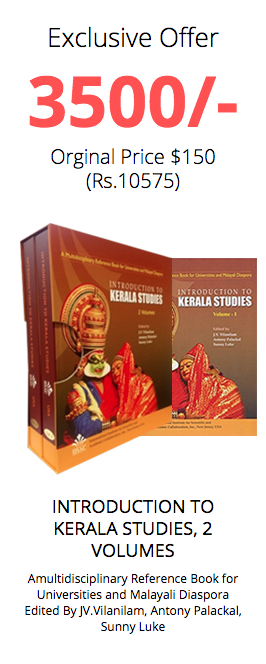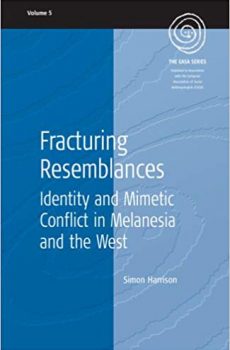
Fracturing resemblances: identity and mimetic conflict in Melanesia and the West
8,400.00₹ 2,130.00₹
Western societies draw crucially on concepts of the ‘individual’ in constructing their images of the ethnic group and nation and define these in terms of difference. This study explores the implications of these constructs for Western understanding of social order and ethnic conflicts. Comparing them with the forms of cultural identity characteristic of Melanesia as they have developed since pre-colonial times, the author arrives at a surprising conclusion: he argues that these kinds of identities are more properly and adequately viewed as forms of disguised or denied resemblance, and that it is these covert commonalities that give rise to, and prolong, social divisions and conflicts between groups.
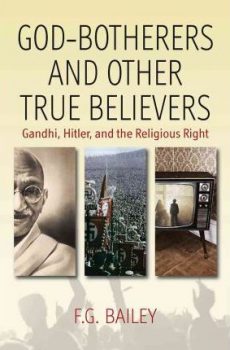
God-botherers and Other True-believers
8,400.00₹ 1,750.00₹
When reason fails to guide us in our everyday lives, we turn to faith, to religion; we close our minds; we reject austere reasoning. This rejection, which is a faith-based social and intellectual malignancy, has two unfortunate consequences: it blocks the way to knowledge that might enhance the quality of life and it opens the way to charlatans who exploit the faith of others. Examining two unquestionable malignancies of “the Christian Right” in present-day politics in the United States and the “secular religion” of Hitler’s National Socialism, as well as the third, more complex case of Gandhi, the author asserts that we need religion, but we also need to make sure it does no harm.
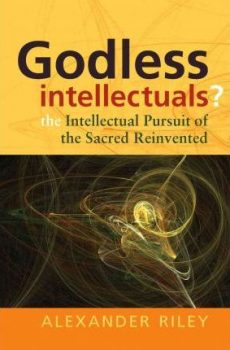
Godless Intellectuals
8,400.00₹ 1,800.00₹
The Durkheimians have traditionally been understood as positivist, secular thinkers, fully within the Enlightenment project of limitless reason and progress. In a radical revision of this view, this book persuasively argues that the core members of the Durkheimian circle (Durkheim himself, Marcel Mauss, Henri Hubert and Robert Hertz) are significantly more complicated than this. Through his extensive analysis of large volumes of correspondence as well as historical and macro-sociological mappings of the intellectual and social worlds in which the Durkheimian project emerged, the author shows the Durkheimian project to have constituted a quasi-religious quest in ways much deeper than most interpreters have thought. Their fascination, both personal and intellectual, with the sacred is the basis on which the author reconstructs some important components of modern French intellectual history, connecting Durkheimian thought to key representatives of French poststructuralism and postmodernism: Bataille, Foucault, Derrida, Baudrillard, and Deleuze.
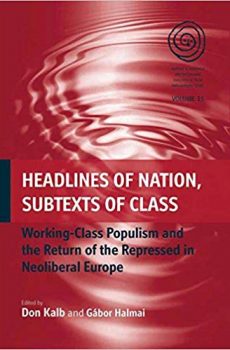
Headlines of Nation, Subtexts of Class
8,400.00₹ 2,655.00₹
Since 1989 neo-nationalism has grown as a volatile political force in almost all European societies in tandem with the formation of a neoliberal European Union and wider capitalist globalizations. Focusing on working classes situated in long-run localized processes of social change, including processes of dispossession and disenfranchisement, this volume investigates how the experiences, histories, and relationships of social class are a necessary ingredient for explaining the re-emergence and dynamics of populist nationalism in both Eastern and Western Europe. Featuring in-depth urban and regional case studies from Romania, Hungary, Serbia, Italy and Scotland this volume reclaims class for anthropological research and lays out a new interdisciplinary agenda for studying identity politics in the intensifying neoliberal conjuncture.

Human Nature as Capacity
8,400.00₹ 2,635.00₹
What is it to be human? What are our specifically human attributes, our capacities and liabilities?Such questions gave birth to anthropology as an Enlightenment science. This book argues that it is again appropriate to bring “the human” to the fore, to reclaim the singularity of the word as central to the anthropological endeavor, not on the basis of the substance of a human nature – “To be human is to act like this and react like this, to feel this and want this” – but in terms of species-wide capacities: capabilities for action and imagination, liabilities for suffering and cruelty. The contributors approach “the human” with an awareness of these complexities and particularities, rendering this volume unique in its ability to build on anthropology’s ethnographic expertise.
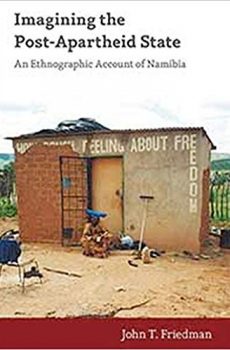
Imagining the Post-Apartheid State: An Ethnographic Account of Namibia
8,400.00₹ 2,200.00₹
In northwest Namibia, people’s political imagination offers a powerful insight into the post-apartheid state. Based on extensive anthropological fieldwork, this book focuses on the former South African apartheid regime and the present democratic government; it compares the perceptions and practices of state and customary forms of judicial administration, reflects upon the historical trajectory of a chieftaincy dispute in relation to the rooting of state power and examines everyday forms of belonging in the independent Namibian State. By elucidating the State through a focus on the social, historical and cultural processes that help constitute it, this study helps chart new territory for anthropology, and it contributes an ethnographic perspective to a wider set of interdisciplinary debates on the State and state processes.

Inclusionary Rhetoric Exclusionary Practices
8,400.00₹ 1,890.00₹
Migration and multiculturalism are hotly discussed in public debates across Europe. Whereas ethnographic research has begun to examine the Right in this context, the Left remains largely unexplored. Drawing on fieldwork conducted in Bologna – the show-case city of the Italian Left – this book provides fresh perspectives on how the contemporary Left “frames” these issues in practice and how such framing has changed in recent decades. By focusing on the official rhetoric grassroots discourses, policy and civil societal practices of the Left as well as on the immigrants’ own views, this book timely offers a comprehensive, vivid, and critical account of changing ideas about ethnicity, class, identity and difference in “progressive” politics and of the implications that such ideas have for the incorporation of migrants in Europe.
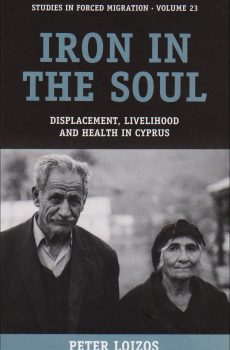
Iron in the Soul: Displacement, Livelihood and Health in Cyprus (Forced Migration)
8,400.00₹ 2,990.00₹
In his vivid, lively account of how Greek Cypriot villagers coped with a thirty-year displacement, Peter Loïzos follows a group of people whom he encountered as prosperous farmers in 1968, yet found as disoriented refugees when revisiting in 1975. By providing a forty year in-depth perspective unusual in the social sciences, this study yields unconventional insights into the deeper meanings of displacement. It focuses on reconstruction of livelihoods, conservation of family, community, social capital, health (both physical and mental), religious and political perceptions. The author argues for a closer collaboration between anthropology and the life sciences, particularly medicine and social epidemiology, but suggests that qualitative life-history data have an important role to play in the understanding of how people cope with collective stress.

Islam and Assisted Reproductive Technologies
8,400.00₹ 1,995.00₹
How and to what extent have Islamic legal scholars and Middle Eastern lawmakers, as well as Middle Eastern Muslim physicians and patients, grappled with the complex bioethical, legal, and social issues that are raised in the process of attempting to conceive life in the face of infertility? This path-breaking volume explores the influence of Islamic attitudes on Assisted Reproductive Technologies (ARTs) and reveals the variations in both the Islamic jurisprudence and the cultural responses to ARTs.
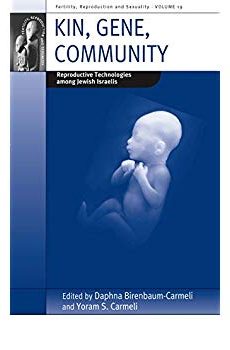
KIN, GENE, COMMUNITY
8,400.00₹ 1,890.00₹
Israel is the only country in the world that offers free fertility treatments to nearly any woman who requires medical assistance. It also has the world’s highest per capita usage of in-vitro fertilization. Examining state policies and the application of reproductive technologies among Jewish Israelis, this volume explores the role of tradition and politics in the construction of families within local Jewish populations. The contributors―anthropologists, bioethicists, jurists, physicians and biologists―highlight the complexities surrounding these treatments and show how biological relatedness is being construed as a technology of power; how genetics is woven into the production of identities; how reproductive technologies enhance the policing of boundaries. Donor insemination, IVF and surrogacy, as well as abortion, pre-implantation genetic diagnosis and human embryonic stem cell research, are explored within local and global contexts to convey an informed perspective on the wider Jewish Israeli environment.
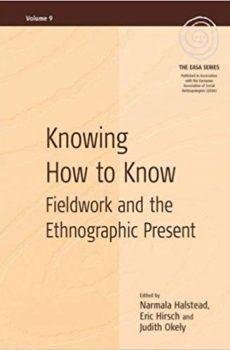
Knowing How to Know
8,400.00₹ 2,090.00₹
This volume examines some crucial issues in the conduct of fieldwork and ethnography and provides new insights into the problems of constructing anthropological knowledge. How is anthropological knowledge created from fieldwork, whose knowledge is this, who determines what is of significance in any ethnographic context, and how is the fieldsite extended in both time and place? Nine anthropologists examine these problems, drawing on diverse case studies. These range from the dilemmas of the religious refashioning of the ethnographer in contemporary Indonesia to the embodied knowledge of ballet performers, and from ignorance about post-colonial ritual innovations by the anthropologist in highland Papua to the skilled visions of slow food producers in Italy. It is a key text for new fieldworkers as much as for established researchers. The anthropological insights developed here are of interdisciplinary relevance: cultural studies scholars, sociologists and historians will be as interested as anthropologists in this re-evaluation of fieldwork and the project of ethnography.
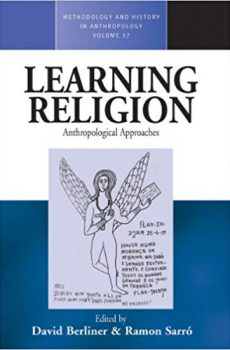
Learning Religion
8,400.00₹ 1,870.00₹
As we enter the 21st century, it becomes increasingly difficult to envisage a world detached from religion or an anthropology blind to its study. Yet, how people become religious is still poorly studied. This volume gathers some of the most distinguished scholars in the field to offer a new perspective for the study of religion, one that examines the works of transmission and innovation through the prism of learning. They argue that religious culture is socially and dynamically constructed by agents who are not mere passive recipients but engaged in active learning processes. Finding a middle way between the social and the cognitive, they see learning religions not as a mechanism of “downloading” but also as a social process with its relational dimension.

Lost to the State
8,400.00₹ 2,900.00₹
Childhood held a special place in Soviet society: seen as the key to a better future, children were imagined as the only privileged class. Therefore, the rapid emergence in post-Soviet Russia of the vast numbers of vulnerable ‘social orphans’, or children who have living relatives but grow up in residential care institutions, caught the public by surprise, leading to discussions of the role and place of childhood in the new society. Based on an in-depth study the author explores dissonance between new post-Soviet forms of family and economy, and lingering Soviet attitudes, revealing social orphans as an embodiment of a long-standing power struggle between the state and the family. The author uncovers parallels between (post-) Soviet and Western practices in child welfare and attitudes towards ‘bad’ mothers, and proposes a new way of interpreting kinship where the state is an integral member.
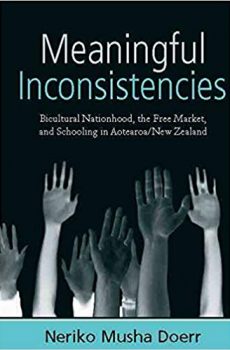
Meaningful Inconsistencies
8,400.00₹ 3,990.00₹
School differentiates students-and provides differential access to various human and material resources-along a range of axes: from elected subjects and academic “achievement” to ethnicity, age, gender, or the language they speak. These categorizations, affected throughout the world by neoliberal reforms that prioritize market forces in transforming educational institutions, are especially stark in societies that recognize their bi- or multicultural makeup through bilingual education. A small town in Aotearoa/New Zealand, with its contemporary shift toward official biculturalism and extensive free-marketization of schooling, is a prime example. Set in the microcosm of a secondary school with a bilingual program, this important volume closely examines not only the implications of categorizing individuals in ethnic terms in their everyday life but also the shapes and meaning of education within the discourse of academic achievement. It is an essential resource for those interested in bilingual education and its effects on the formations of subjectivities, ethnic relations, and nationhood.

Neo-nationalism in Europe and Beyond
8,400.00₹ 2,995.00₹
By the early twenty-first century neo-nationalist forces have established themselves in a number of the world’s large regions and subcontinents. From Australia to South Asia, in Eastern and Western Europe, comparable parties and movements have positioned themselves in national parliaments and governments, with some considerable impact on state power. In contrast to right-wing extremist parties in the past, these recent movements mostly operate within legal parliamentary channels, using essentialized notions of local culture to mobilize against real and alleged threats to local identities of status, gender, religion, nationhood and ethnicity. Prompted by this near-simultaneous rise to political influence of more than a dozen apparently similar parties across Western Europe, this collection offers a range of European case studies with selected global examples, such as the Front National, the late Pim Fortuyn, India and the BJP, and Pauline Hanson and her One Nation Party in Australia. It takes up the theoretical and methodological challenges posed by this phenomenon and asks what distinctive contributions anthropology might make to its study.

Ogata-Mura: Sowing Dissent and Reclaiming Identity in a Japanese Farming Village
8,400.00₹ 2,090.00₹
Following the Second World War, a massive land reclamation project to boost Japan’s rice production capacity led to the transformation of the shallow lagoon of Hachirogata in Akita Prefecture into a seventeen-thousand-hectare expanse of farmland. In 1964, the village of Ogata-mura was founded on the empoldered land inside the lagoon and nearly six hundred pioneers from across the country were brought to settle there. The village was to be a model of a new breed of highly mechanized, efficient rice agriculture; however, the village’s purpose was jeopardized when the demand for rice fell, and the goal of creating an egalitarian farming community was threatened as individual entrepreneurialism took root and as the settlers became divided into political factions that to this day continue to struggle for control of the village. Based on seventeen years of research, this book explores the process of Ogatamura’s development from the planning stages to the present. An intensive ethnographic study of the relationship between land reclamation, agriculture, and politics in regional Japan, it traces the internal social effects of the village’s economic transformations while addressing the implications of national policy at the municipal and regional levels.

On the Margins of Religion
8,400.00₹ 2,190.00₹
Focusing on places, objects, bodies, narratives and ritual spaces where religion may be found or inscribed, the authors reveal the role of religion in contesting rights to places, to knowledge and to property, as well as access to resources. Through analyses of specific historical processes in terms of responses to socio-economic and political change, the chapters consider implicitly or explicitly the problematic relation between science (including social sciences and anthropology in particular) and religion, and how this connects to the new religious globalisation of the twenty-first century. Their ethnographies highlight the embodiment of religion and its location in landscapes, built spaces and religious sites which may be contested, physically or ideologically, or encased in memory and often in silence. Taken together, they show the importance of religion as a resource to the believers: a source of solace, spiritual comfort and self-willed submission.

Out of Place
8,400.00₹ 1,890.00₹
The Kakoli of the Western Highlands of Papua New Guinea (PNG), the focus of this study, did not traditionally have a concept of mental illness. They classified madness according to social behaviour, not mental pathology. Moreover, their conception of the person did not recognise the same physical and mental categories that inform Western medical science, and psychiatry in particular was not officially introduced to PNG until the late 1950s. Its practitioners claimed that it could adequately accommodate the cultural variation among Melanesian societies. This book compares the intent and practice of transcultural psychiatry with Kakoli interpretations of, and responses to, madness, showing the reasons for their occasional recourse to psychiatric services. Episodes involving madness, as defined by the Kakoli themselves, are described in order to offer a context for the historical lifeworld and praxis of the community and raise fundamental questions about whether a culturally sensitive psychiatry is possible in the Melanesian context.

Person and Place
8,400.00₹ 1,990.00₹
Concerned with contemporary notions of personhood and the relationship between persons and places, this book, presents a detailed insight into the Vanua Lavan’s engagement with modernity, and examines how they relate to the past, make sense of the present and anticipate the future. Marilyn Strathern’s claim that the Melanesian person is a dividual by and large holds for the Vanua Lavan person. But Vanua Lavans have also been exposed to, and creatively engaged with, what can be summarised under the term ‘Western individualism’. The author draws together several themes, discourses and conversations which concern Vanuatu specifically, the Pacific as a wider geographic area but also theoretical fields in anthropology: the relevance and expressions of sociality through kinship, concepts of person, issues about land and cosmology, the kastom debate, and questions about continuity and change. In doing so she provides a snapshot of contemporary notions of personhood.
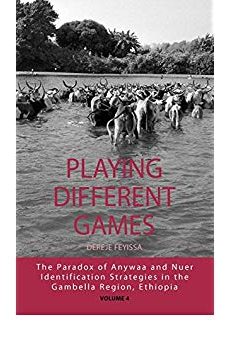
Playing Different Games
8,400.00₹ 2,750.00₹
Focusing on ethnicity and its relation to conflict, this book goes beyond sterile debates about whether ethnic identities are ‘natural’ or ‘socially constructed’. Rather, ethnic identity takes different forms. Some ethnic boundaries are perceived by the actors themselves as natural, while others are perceived to be permeable. The argument is substantiated through a comparative analysis of ethnic identity formation and ethnic conflict among the Anywaa and the Nuer in the Gambella region of western Ethiopia. The Anywaa and the Nuer are not just two ethnic groups but two kinds of ethnic groups. Conflicts between the Anywaa and Nuer are explained with reference to three variables: varying modes of identity formation, competition over resources and differential incorporation into the state system.

